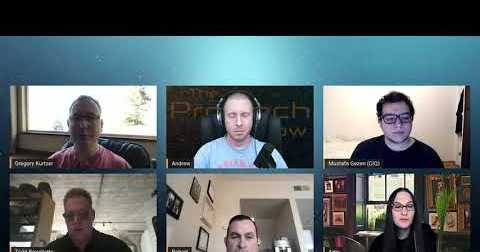Webinar
CIQ's live chat with the ProTech Show! Part 7

Watch the entire video on ProTech Show's channel here: https://youtu.be/nDgL0xi1nXY
Speakers:
Note: This transcript was created using speech recognition software. While it has been reviewed by human transcribers, it may contain errors.
Full Webinar Transcript:
Gregory Kurtzer:
I would like to jump in with another perspective. The messaging is very powerful. As Amy said “we can count sockets, we can count servers, but we don’t want to.” We don’t support servers, we support people because they are what makeup companies.The success of the company is tied to the success of the individuals. With the way we are approaching this, we have a wide variety of support and SLA options. For example, one of these starts out with an individual.
We were talking with several consultants a while ago and you know, some people that are doing very specific things such as copy, website development, or anything. They are their own single person shops. They consult themselves. And they said “You know, it would be really great if when we had a problem, I know that we can contact you, right? I don't have an escalation point, right? It's me at this company. If I can't solve a problem that I run into on a customer's web server, for example, I don't have an escalation path. I'm on Google or I'm on Stack Overflow trying to figure this stuff out. It would be really great if we had some manner to escalate.”
And we are getting the exact same message now from very large IT teams at very large companies that say: “we also need some sort of escalation path if we can't solve something.” And when we're looking at this I don't want to count cloud instances, I don't want to count how many containers somebody is running, or how many servers or virtual servers somebody is running. I want to just support that person. Whatever that person is responsible for, we are responsible for that person's success. The success of the individual is our success. And that's how we're looking at this. It is very people focused and people oriented. It also scales very nicely. Not only do you have different SLAs for different levels of support, but also if we're supporting the individuals in a small company who may only have a few IT people versus somebody like Target or Walmart who has hundreds of IT people, the model scales. Model scales actually very well. So that's how we're approaching this. We're looking at this from a completely different perspective. So far the response has been tremendous. It feels like an obvious solution. I can’t believe that this hasn’t been done widely before.
Andrew Quinn:
It's an interesting way you put it. This is about people.
Built for Scale. Chosen by the World’s Best.
1.4M+
Rocky Linux instances
Being used world wide
90%
Of fortune 100 companies
Use CIQ supported technologies
250k
Avg. monthly downloads
Rocky Linux